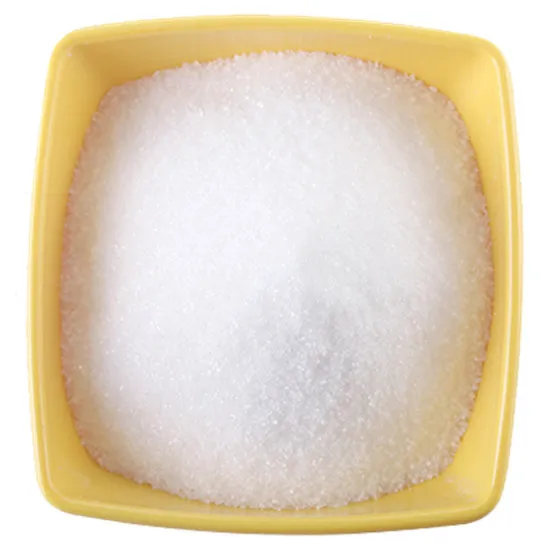Understanding Fructose: Its Role in the Diet and Health Implications
2024-08-20
Introduction
Fructose, often referred to as "fruit sugar," is a simple sugar found naturally in many fruits, vegetables, and honey. It is also a major component of high-fructose corn syrup, a sweetener commonly used in processed foods and beverages. While fructose is a natural part of the human diet, its consumption has become a topic of concern due to its potential health effects. In this blog, we’ll explore what fructose is, its role in the diet, and the implications of consuming it in large quantities.
1. What Is Fructose?
Fructose is a monosaccharide, or simple sugar, that is naturally found in fruits, some vegetables, and honey. It is one of the three main dietary sugars, along with glucose and galactose. When fructose is combined with glucose, it forms sucrose, commonly known as table sugar.
Fructose has a unique chemical structure that makes it sweeter than glucose, which is why it is often used as a sweetener in the food industry. High-fructose corn syrup (HFCS), which is made by converting some of the glucose in corn syrup into fructose, is commonly used in soft drinks, baked goods, and other processed foods due to its cost-effectiveness and high sweetness level.
2. Natural Sources of Fructose
Fruits such as apples, pears, and grapes are rich in fructose, as are vegetables like carrots and onions. Honey is another natural source of fructose. In these whole foods, fructose is accompanied by fiber, vitamins, minerals, and antioxidants, which contribute to the overall health benefits of consuming these foods. The fiber in fruits and vegetables, for example, helps slow down the absorption of fructose, reducing the potential for spikes in blood sugar levels.

3. Fructose in Processed Foods
The use of fructose, particularly in the form of HFCS, has increased significantly over the past few decades. HFCS is found in a wide range of processed foods, including soft drinks, candy, baked goods, and condiments. This widespread use has raised concerns about the potential health effects of high fructose consumption, especially given that it is often consumed in much larger quantities than what would be naturally ingested through fruits and vegetables.
4. Health Implications of High Fructose Consumption
While fructose is naturally present in many healthy foods, its excessive consumption, particularly from processed foods and sugary beverages, has been linked to several health issues. One of the primary concerns is its role in the development of obesity and related metabolic disorders.
When consumed in large amounts, fructose is metabolized differently than glucose. Unlike glucose, which is used by the body's cells for energy, fructose is primarily processed in the liver. Over time, excessive fructose intake can lead to an accumulation of fat in the liver, contributing to non-alcoholic fatty liver disease (NAFLD). It may also promote insulin resistance, a key factor in the development of type 2 diabetes.
Moreover, high fructose consumption has been associated with increased levels of triglycerides, a type of fat in the blood that is a risk factor for heart disease. It can also contribute to the development of visceral fat, the harmful fat that surrounds internal organs and is linked to a higher risk of cardiovascular diseases.
5. Balancing Fructose in the Diet
Given the potential health risks associated with high fructose intake, it’s important to balance fructose consumption in the diet. This doesn’t mean avoiding fruits and vegetables, as these foods provide essential nutrients and fiber that are beneficial to health. Instead, the focus should be on limiting the intake of processed foods and sugary beverages that contain high levels of added fructose.
Reading food labels can help identify products with added sugars, including HFCS. Reducing consumption of such products, while increasing the intake of whole fruits, vegetables, and other nutrient-dense foods, can help manage fructose intake and support overall health.
Conclusion
Fructose, in its natural form, is a part of a healthy diet when consumed through whole fruits and vegetables. However, the excessive intake of fructose from processed foods and sugary drinks has raised concerns about its potential health impacts. By understanding the role of fructose in the diet and making informed food choices, individuals can enjoy the benefits of natural sources of fructose while minimizing the risks associated with overconsumption. Balancing fructose intake is key to maintaining a healthy diet and preventing metabolic disorders.


